Group Leaders
Research Groups at Idiap investigate core AI-related disciplines, ranging from theory to applications. Groups are compact, highly interconnected units of scientific enquiry and applicative work, contributing to the Institute’s four Research Programs.

Dr. André Anjos
Medical Artificial Intelligence Group
More
André Anjos received his Ph.D. degree in signal processing in 2006 studying the application of neural nets and statistical methods for particle recognition in the context of High-Energy Physics experiments at Large Hadron Collider at CERN, Switzerland. He joined the Idiap Research Institute in 2010 where he works with biosignal processing and biometrics applications. He currently heads the Biosignal Processing Group at Idiap. Current interests include medical applications, reproducible research, pattern recognition, image processing and machine learning. André teaches graduate-level machine learning courses at the École Polytechnique Fédérale de Lausanne (EPFL) and serves as reviewer for various scientific journals in pattern recognition, image processing and biometrics.
Personal webpage
+41277217763
Contact form

Dr. Sylvain Calinon
Robot Learning & Interaction Group
More
Dr. Sylvain Calinon has been a lead scientists at Idiap since May 2014, with research interests covering robot learning and human-robot interaction.
His research focuses on human-centric robotic applications in which the robots can learn new skills by interacting with the end-users. The challenge is to acquire skills from only few demonstrations and interactions, with strong generalization requirements. This requires the development of intuitive active learning interfaces to acquire meaningful demonstrations, the development of models that can exploit the structure and geometry of the acquired data in an efficient way, and the development of adaptive control techniques that can exploit the learned task's variations and coordination patterns.
Personal webpage
+41277217761
Contact form

Dr. Elena Epure
Language & Information Technologies Group
More
Dr. Elena V. Epure leads the Language and Information Technologies group at Idiap. She joined the institute after 7 years as an NLP Research Scientist at Deezer, a global, Paris-based company specializing in music, audiobook, and podcast streaming. She earned her PhD in Computer Science from Panthéon-Sorbonne University, in an environment deeply connected to the social sciences and humanities. Before that, Elena completed an MSc in Business Informatics at Utrecht University and a BSc in Computer Science and Engineering at Politehnica University of Bucharest. Prior to starting her research career and PhD, she worked as a Software Engineer and Technical Trainer in both the Netherlands and Romania.
Elena's expertise lies at the intersection of Natural Language Processing (NLP), Recommender Systems (RecSys), and Information Retrieval (IR). Her current research focuses on creative media, building on her previous work with social media and news content. She applies NLP fundamentals to improve the understanding, personalization, and contextualization of creative media, and is also actively working on conversational user interactions for personalized recommendation and search.
+41277217744
Contact form

Dr. André Freitas
More
André Freitas leads the Reasoning & Explainable AI group at Idiap. He is also a senior lecturer (associate professor) at the Department of Computer Science at the University of Manchester and the AI group leader at the digital Experimental Cancer Medicine Team (CancerResearchUK).
His main research interests are on enabling the development of AI methods to support abstract, explainable and flexible inference. In particular, he investigates how the combination of neural and symbolic data representation paradigms can deliver better inference. Some of his research topics include: explanation generation, natural language inference, explainable question answering, knowledge graphs and open information extraction. He is actively engaged in collaboration projects with industrial and clinical partners.
Personal webpage
+41277206329
Contact form

Dr. Philip N. Garner
More
Dr. Philip N. Garner received an M.Eng. Degree in Electronic Engineering from the University of Southampton, (UK) in 1991, and his Ph.D. (by publication) from the University of East Anglia, (UK) in 2012.
As of April 2007, he is a senior research scientist at Idiap continuing his work in the research and development of speech recognition, synthesis and signal processing. He also holds a lecturing position at EPFL.
He is a Senior Member of the IEEE, has published internationally in conference proceedings, patent, journal and book form and has served as coordinating editor of ISO/IEC 15938-4 (MPEG-7 Audio). He is the author of several patents.
Personal webpage
+41277217768
Contact form

Prof. Daniel Gatica-Perez
More
Prof. Daniel Gatica-Perez directs the Social Computing Group at Idiap and is Professeur Titulaire at EPFL, where he is a faculty member of the School of Engineering, the College of Humanities, and the Digital Humanities Institute.
His research integrates theories and methods from ubiquitous computing, social media, machine learning, and social sciences to understand human and social behavior in daily life and to create applications for social good. His current work includes mobile crowdsourcing in cities; large-scale analysis of mobile social media, smartphone data, and open data; and analysis of conversational behavior both face-to-face and online.
His research has been supported by the SNSF, CTI, EU, and multinational industry partners. He also works with cities and local organizations on social innovation projects.
Personal webpage
+41277217733
Contact form

Dr. Janna HASTINGS
Human-Centered Health AI Group
More
Janna Hastings was born in Cape Town, South Africa where she completed her undergraduate studies in Mathematics and Computer Science. Thereafter, she moved to Cambridge, UK to join the Cheminformatics and Metabolism group at the European Bioinformatics Institute (2006-2015) where she led the development of the ChEBI molecular ontology and metabolism knowledgebase. She completed part-time Master’s degrees in Computer Science (University of South Africa, 2011) and Philosophy (Open University, 2012). She subsequently obtained her PhD in Computational Biology from the University of Cambridge (2015-2019), combining multi-omics data analysis with time-series modelling. She completed postdoctoral studies at the Otto-von-Guericke University Magdeburg (2019-2022) working at the intersection between knowledge-based systems and artificial intelligence, at the EPFL (2020-2022) in neurodegenerative disease bioinformatics, and with the Human Behaviour-Change Project at University College London (2017-2022) where she helped to create an artificial intelligence-driven knowledge system for evidence about human behavior change to support decision-making, policy and practice. Between August 2022 and December 2025 she was Assistant Professor of Medical Knowledge and Decision Support at the Institute for Implementation Science in Health Care, Faculty of Medicine, University of Zurich, and Vice-Director of the School of Medicine at the University of St. Gallen, where she worked on biomedical and clinical AI, knowledge resources, evidence synthesis, and decision support systems, alongside methodological research on large language and multi-modal models and interpretability. Since January 2026, she has taken up the position of Senior Research Scientist at the Idiap Research Institute where she leads a group focused on advancing AI methods for health-related applications.
+41277217739
Contact form

Dr. James Henderson
Natural Language Understanding Group
More
Dr James Henderson is the Head of the Natural Language Understanding group, since joining Idiap in September 2017. He received his PhD from the University of Pennsylvania.
His research is in Natural Language Processing and Machine Learning, covering a wide range of topics but focusing on deep learning architectures for natural language understanding tasks. He did pioneering work on deep learning for structured prediction in natural language processing, and has extensive experience in spoken dialog systems. His current research interests focus on deep learning methods for discovering representations of meaning in natural language, including representations of semantic abstraction and their application to large scale opinion summarization.
Personal webpage
+41277217729
Contact form
Dr. Jérôme Kämpf
More
Dr Jérôme Kämpf leads the Energy Informatics group at Idiap. He also is External Professor at the University of Applied Sciences (HES-SO Master) and was Research and Teaching Associate at the Solar Energy and Buildings Physics Laboratory (LESO-PB) of EPFL. Founder of the start-up company kaemco, distributing the urban energy simulation tool CitySim Pro, Jérôme received his PhD from EPFL back in 2009. His research interests are related to the urban simulation through developments of the tool CitySim, and its connections to other simulation engines (energy networks, micro-climate) and visualization tools. More specifically, he focuses at Idiap on smart metering in cities, smart control algorithms, uncertainty on input data and their impact on the urban performance, decentralized renewable production and storage, without forgetting urban comfort and urban heat & cool island effects.
Personal webpage
+41277217430
Contact form
Dr. Ina Kodrasi
Signal Processing for Communication Group
More
Ina Kodrasi received the Master of Science degree in Communications, Systems, and Electronics from Jacobs University Bremen, Germany, in 2010, and the Ph.D. degree from the University of Oldenburg, Germany, in 2015. Since January 2021, she is leading the Signal Processing for Communication group at Idiap. She is also teaching in the Master in Artifical Intelligence program offered by Idiap and the Swiss Distance University Institute.
Her current research interests are in the area of signal processing and machine learning for speech, audio, and clinical applications. The main focus of her group is to establish novel algorithms to automatically detect speaking and hearing impairments, to provide speaking and hearing assistance, and to improve the communication experience in the presence of interferences.
She has been awarded the "Preis der ITG 2019" and the "EURASIP 2020 Best PhD Award". She serves as an elected member of the IEEE Signal Processing Society Technical Committee on Audio and Acoustic Signal Processing and of the EURASIP Technical Area Committee on Acoustic, Speech and Music Signal Processing.
Personal webpage
+41277217794
Contact form

Dr. Mathew Magimai-Doss
Speech & Audio Processing Group
More
Dr. Mathew Magimai Doss has been a senior researcher within the Speech and Audio Processing Group since 2007. He has also been a lecturer at EPFL since 2010. He was awarded a PhD (Dr.ès sc.) in Electrical and Electronics Engineering from EPFL in 2005. He has published more than 90 papers in peer-reviewed journals and a range of conference papers.
He is the co-founder of AudioSearch SARL, an Idiap spin-off created in 2010. His research interests are speech and audio processing, signal processing, statistical pattern recognition, and artificial neural networks.
Personal webpage
+41277217788
Contact form

Prof. Sébastien Marcel
Biometrics Security & Privacy Group
AI for Trust
More
Prof. Sébastien Marcel is Head of the Biometrics Security and Privacy Group. He is also Director of the Swiss Center for Biometrics Research and Testing. In 2010, he was appointed Visiting Associate Professor at the University of Cagliari (IT). He is also a lecturer at the Ecole Polytechnique Fédérale de Lausanne (EPFL). He received his Ph.D. in Signal Processing from the Université de Rennes I (France) in 2000.
He is currently interested in pattern recognition and machine learning with a focus on biometric security ie. face, voice, and vein recognition and the detection of presentation attacks (anti-spoofing). He is currently Associate Editor of the IEEE Signal Processing Letters. He has been Associate Editor of IEEE Transaction on Information Forensics and Security (TIFS), and was co-Editor of the "Handbook of Biometric Anti-Spoofing",and Guest Editor of an IEEE TIFS Special Issue on "Biometric Spoofing and Countermeasures" and of the IEEE Signal Processing Magazine Special Issue on "Biometric Security and Privacy".
He has been the principal investigator of EU FP7 research projects including MOBIO, TABULA RASA and BEAT. His recent research has been supported by the SNSF, CTI, and EU, and by Norway, and the industry (including Safran Morpho, and Google).
Personal webpage
+41277217727
Contact form

Prof. Paola Merlo
Computational Learning and Computational Linguistics Group
More
Prof. Paola Merlo is the head of the interdisciplinary research group Computational Learning and Computational Linguistics (CLCL) and associate professor at the university of Geneva. She holds a Ph.D. from the University of Maryland, USA. She has been an associate research fellow at the University of Pennsylvania, visiting scholar at Edinburgh, Stanford and adjunct professor at Uppsala University.
Prof. Merlo is an ACL Fellow for "pioneering research on the fundamental problem of verb predicate-argument structure". She is the past editor-in-chief of Computational Linguistics, has been an elected member of the several executive committees of the ACL and has served as general chair and committee member of many main ACL conferences.
She is currently involved in the centre of competence in research on the evolution of language, NCCR Evolving Language, and in 2022 has been awarded an SNSF Advanced grant.
Her research is highly interdisciplinary, combining linguistic modelling with machine learning techniques, mostly to study the automatic learning of syntactic and semantic properties, across many languages. The main current focus revolves around the interpretation of representations of the lexical semantics of verbs, as created by neural networks. To this end, a new tasks has been developed, inspired by human IQ tests, that bridges issues of language and reasoning. Collaborations with colleagues in Geneva have started investigation on the human behaviour when solving this tasks. Prof. Merlo is also intersted in ethical and gender-bias issues raised by current deep learning models.
Personal webpage
+41277206348
Contact form

Dr. Petr Motlicek
Speech & Audio Processing Group
More
Dr. Petr Motlicek has been a research scientist within the Speech and Audio Processing Group since 2005. He also holds a position as an external teacher at Brno University of Technology's Faculty of Information Technology, (Czech Republic). He received his PhD degree in Electrical Engineering and Computer Science from Brno University of Technology. His scientific work was in part carried out at Oregon Graduate Institute and at the Ecole Superieure d'Ingenieurs en Electrotechnique et Electronique (France).
His research activities are oriented around audio and speech processing technologies (voice coding and recognition, and speaker recognition), conversation analysis and machine learning. Many of designed applications are developed in collaboration with security/government (LEA) bodies in Switzerland, or at the EU level. He has significantly contributed to Kaldi- open-source software developed for speech and speaker recognition tasks, with many new libraries for signal processing being provided by Idiap.
Personal webpage
+41277217749
Contact form

Dr. Jean-Marc Odobez
Perception & Activity Understanding Group
More
Dr. Jean-Marc Odobez received his PhD from Rennes University/INRIA in 1994 and was, from 1996 to 2001, Assistant Professor at the University of Maine, France. He is now a Senior Researcher at Idiap and adjunct faculty at the École Polytechnique Fédérale de Lausanne (EPFL) where he is a member of the School of Engineering (STI).
His research theme is the creation of multimodal perception systems and the research of methods in the fields of signal processing, computer vision, machine learning, or social sciences to model, understand and recognize human activity, behaviors, non-verbal communication and human-robot interactions. Application areas are surveillance, multimedia content analysis or social robotics.
He is the author or coauthor of more than 150 papers, and has been the principal investigator of more than 14 European and Swiss projects. He holds several patents in computer vision, and is the cofounder of the companies Klewel SA (www.klewel.ch) and Eyeware SA (https://www.eyeware.tech/) companies. He is a member of the IEEE, and Associate Editor of the IEEE Transaction on Circuits and Systems for Video Technology and of Machine Vision and Application journals.
Personal webpage
+41277217726
Contact form

Dr. Emmanuel Senft
Human-centered Robotics and AI Group
More
Dr. Emmanuel Senft leads the Human-centered Robotics and AI group at the Idiap Research Institute since September 2022. He obtained his MSc in Microengineering at EPFL in 2013 and his PhD at the University of Plymouth in the United Kingdom in 2018. He was then awarded a JSPS summer fellowship to conduct research at ATR in Japan in 2019 and was a Research Associate and Technical Lead on a NASA ULI project at the University of Wisconsin Madison from 2019 to 2022.
Personal webpage
+41277217748
Contact form

Dr. Damien Teney
More
Dr. Damien Teney is the head of the machine learning group at Idiap. He joined the institute in 2021 after five years as a senior researcher at the Australian Institute for Machine Learning in Adelaide, Australia. Previously, he has also been affiliated with Carnegie Mellon University (USA), the University of Bath (UK), and the University of Innsbruck (Austria). Originally from Belgium, he received a PhD in computer science from the University of Liège in 2013.
He is best known for his work with deep learning at the intersection of computer vision and natural language processing. His work contributed to advances in automatic image captioning and visual question answering. His current research interests include meta learning, causal reasoning, and various approaches to expand the limits of statistical machine learning. His research aims to learn models that generalize beyond the distribution of their training data, and models that are robust to the shifts in the data observed in the real world.
Personal webpage
+41277217780
Contact form
Former Researchers
Since the foundation of the Institute in 1991, hundreds of researchers have contributed to its development. We are glad to be here today thanks to their work and support.
We have listed below senior researchers who previously led a research group since Idiap's beginning.
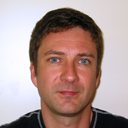
David BARBER
During his 3 years at Idiap, David has led the Machine Learning research group and has been part of numerous PhD theses committee. Since 2007, he has become a fellow of the Alan Turing Institute and professor of machine learning at University College London (UCL). In January 2020, he founded OptimalAI, a company which automate AI decision-making for industry.
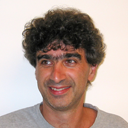
Samy BENGIO
During 8 years, Samy was the head of the Machine Learning research group at Idiap. He directed several PhD theses and collaborated on many publications such as the "Discriminative Kernel-based Model to Rank Images from Text Queries". In 2007, he joined the Google research team. Currently, he is working at Apple.
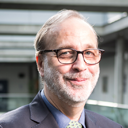
Hervé BOURLARD
Former Institute Director and head of the Speech & Audio Processing research group at Idiap; former full professor and head of the LIDIAP laboratory at EPFL from 1996 to 2023. Mr. Bourlard is currently Honorary Professor at EPFL and Emeritus Research Scientist at Idiap..

Thomas BREUEL
During a couple of years, from 1992 to 1994, Thomas developed a research program in computer vision and handwriting recognition at Idiap. Then he worked for IBM, Google and was full professor during ten years at the University of Kaiserslautern in Germany. Since 2016, he is distinguished research scientist at NVIDIA in California.
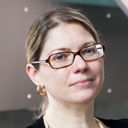
Barbara CAPUTO
With a PhD in computer science from the KTH Royal Institute of Technology, Barbara came to Idiap to develop her research activities in the field of visual cognitive sciences applied in particular to robotic vision. After Idiap, she continued her career as associate professor and head of the Visual and multimodal applied learning laboratory at the University of Rome "La Sapienza".

Andrea CAVALLARO
Former Institute Director, former head of the LIDIAP laboratory at EPFL from 2023 to 2025. Mr. Cavallaro continued his career as full professor at EPFL.

Gérard CHOLLET
From 1992 to 1997, Gérard worked as senior scientist at Idiap, before moving to CNRS in France. He is currently working for various private companies active in technologies development.
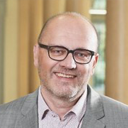
Jean-Luc COCHARD
After a PhD at EPFL, from to 1991 to 1997, Jean-Luc worked at Idiap as a researcher and as director ad interim during two years. He continued his career at Swisscom and various private companies. Since 2013, he is the head ot the IT unit at the Swiss federal archives.
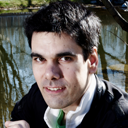
Ronan COLLOBERT
Ronan did his PhD in machine learning at Idiap and then led the Applied Machine Learning research group. During his time at Idiap, he collaborated and published numerous major papers with a particular emphasis on generic machine-learning. In 2014, Ronan has continued his way as a research scientist at Facebook. Currently, he is working at Apple
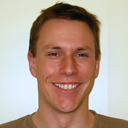
John DINES
After a PhD in computer science at the Queensland University of Technology, John came to Idiap as a research scientist to work on very low rate speech coding, large vocabulary speech recognition and speech synthesis. Since 2014, he started his own business as a consultant in rich transcription and speech recognition and moved later to the Expedia Group where he is currently principal data scientist.
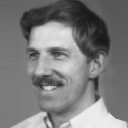
Emile FIESLER
During six years at Idiap, until 1997, Emile was active in the biology field. He is currently president at Bioveyda in California and is focusing on biodiversity issues.
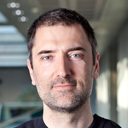
François FLEURET
Francois came to Idiap as senior research scientist to lead the Machine Learning research group. He supervised several doctoral students and collaborated on several major projects such as the MASH European project. Since 2020, François joined the University of Geneva as full professor of computer science.
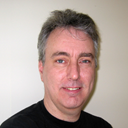
Mike FLYNN
Idiap welcomed Mike in 2003 to join the Multimodal Interaction research group. During his 6 years at the institute, he notably worked on new techniques for multimodal navigators. Since 2009, Mike moved to Manchester where he founded two companies active in the field of artificial intelligence.
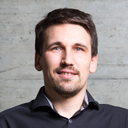
David GINSBOURGER
Focusing his research on Gaussian random field modelling and adaptive design of experiments, David was the head of the Uncertainty Quantification and Optimal Design research group at Idiap. During 5 years, he followed several students and took part in the Master in Artificial Intelligence developed by our institute. Since 2020, he is leading a research group at the university of Bern as a titular professor.
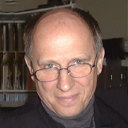
Hynek HERMANSKY
Hynek joined Idiap in 2003 to lead the Speech Processing research group. As a senior research scientist, he collaborated on many publications in scientific reviews such as the IEEE Signal Processing Letters or the Journal of Acoustical Society of America. In 2008, he became professor and director at the Center for Language and Speech Processing at The Johns Hopkins University.
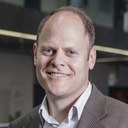
Michael Liebling
Michael joined Idiap in 2015 as a Senior Research Scientist to lead the Computational Bioimaging Group, contributing to numerous publications. Since 2007, Michael has been engaged with UC Santa Barbara as an Adjunct Professor while simultaneously pursuing his career at Idiap. Since 2025, he has dedicated himself exclusively to his role at UC Santa Barbara.
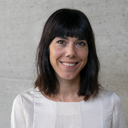
Raphaëlle LUISIER
Raphaëlle Luisier joined Idiap in 2019, where she led her research group. Her research focused on the development of computational and informatics methods for the integrative analysis of genomic, imaging, and digital data, with the aim of improving the understanding and diagnosis of complex disorders such as neurodegenerative diseases. Since 2025, she has been an Assistant Professor at the Faculty of Medicine at the University of Bern.
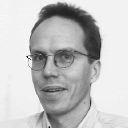
Eddy MAYORAZ
During four years, until 1999, Eddy led the machine learning research group at Idiap. He conducted research projects on different pattern recognition and classification techniques. After holding various positions at Motorola, Yahoo and Quantcast, since 2010, he works at Google.
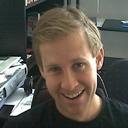
Iain MCCOWAN
Iain joined Idiap as a senior research scientist in Speech Processing. He participated in several large-scale projects, including IM2, M4 and AMI. His research interests include in particular acoustic antennas and speaker segmentation. In parallel with his research, since January 2004, he has been the scientific coordinator for the integrated European project AMI. He is also an adjunct professor at the University of Queensland and co-founder of Notiv.
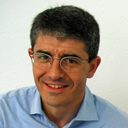
José DEL R. MILLÁN
Named world leader in robotics research by Scientific American magazine in 2004, José joined Idiap in 2002 to lead research in brain interfaces. During his 6 years here, he directed several PhD theses and collaborated on numerous publications on the theme of brain-computer interfaces. Since 2008 he has been a professor in several universities including EPFL and today holds the post of Carol Cockrell Curran Endowed Chair at The University of Texas at Austin.
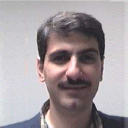
Chafik MOKBEL
From 1998 to 1999, Chafik conducted research at Idiap. He is currently professor of computer engineering at the University of Balamand in Lebanon.
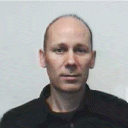
Andrew MORRIS
Starting in 1998, for four years, Andrew conducted research in the robust automatic speech recognition field. The techniques included hidden-Markov models, artificial neural networks, multi-stream combination, Bayesian recognition with missing and uncertain data and Bayesian networks. After Idiap he pursued a successful career in both private companies and academia.
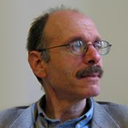
Daniel OSHERSON
Former Institute Director from 1991 to 1995. He continued his career as professor at the University of Pennsylvania and later in Princeton, as a professor of psychology.
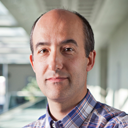
Andrei POPESCU-BELIS
Andrei joined Idiap as head of the Natural Language Processing group to continue his researchers on text analysis at the semantic and pragmatic levels for machine translation and information retrieval. He has supervised numerous doctoral theses and received several awards for his publications. Since 2017, Andrei holds the position of professor in computer science at the School of management and engineering Vaud (HEIG-VD).
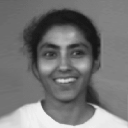
Indu SAXENA
From 1991 to 1997, Indu research fields at Idiap concerned characterized and integrated liquid crystal light valves performance in optical signal processor machines for real-time signal processing of digital images. After several experiences in Californian private firms focusing on optics, he is currently the principal scientist at Innoveyda in Los Angeles.
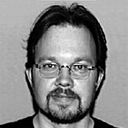
Kari TORKOLA
During two years at Idiap, from 1992 to 1994, Kari’s research in automatic speech recognition and neural networks. After a career as an adjunct professor at the Arizona state university, since 2008, he is senior principal research scientist at Amazon.
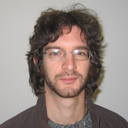
Fabio VALENTE
Fabio came to Idiap to work on speech processing. He was part of a PhD thesis committee and participated in many European projects such as RODI (Role based speaker diarization) or RECOD 2012 (Very low bit-rate speech coding). Fabio continued his career as an IT consultant at Libero professionista ICT.
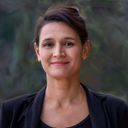
Lonneke VAN DER PLAS
Lonneke Van der Plan joined Idiap in 2021, where she led a research group. Her research was in the field of Natural Language Processing, particularly multilingual processing and language understanding. She is known for her work on vector-based semantics, NLP for low-resource languages, and semantic role labeling. Since 2024, she has been an Associate Professor at USI (Università della Svizzera italiana).

Jithendra VEPA
Jithendra joined Idiap to work in the Speech Processing research group on speech recognition using data-driven approaches, posterior-based hierarchical automatic speech recognition, and speech recognition in meetings. Since 2007, he has worked successively for Philips and Samsung and is now chief scientist at Observe.Ai.
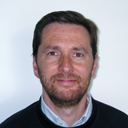
Alessandro VINCIARELLI
Alessandro joined Idiap as a PhD student and became researcher in the Information Retrieval research group after having obtained his PhD. After his work at Idiap, he became professor at the University of Glasgow and currently occupies in parallel the position of director and principal investigator at Social AI CDT.
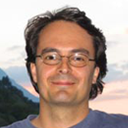
Pierre WELLNER
Pierre came to Idiap to work in the Multimodal Interaction research group. During 5 years, he developed meeting recording browsers from research in speech, computer vision, and machine learning. He also defined and managed international research projects at multiple universities and corporations, such as AMI & IM2. After he left, Pierre continued as co-founder and CTO of Spiderphone and is now research manager at INFICON.

